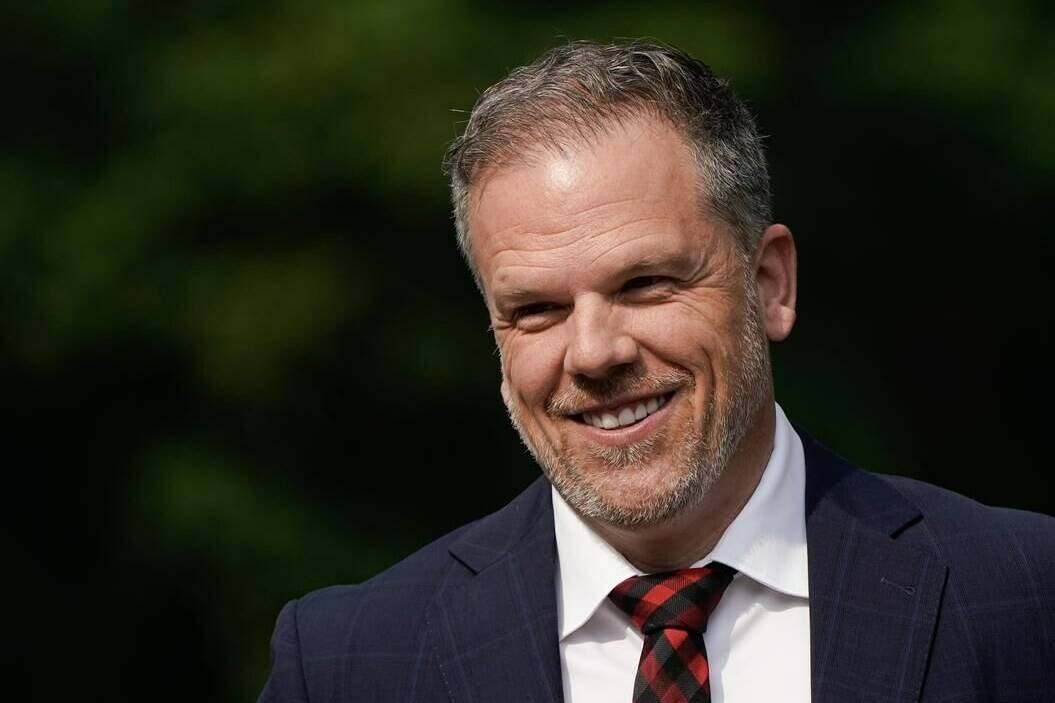Newly appointed Health Minister Mark Holland says he doesn’t want to go waving a stick around as he negotiates the final details of a health accord with provinces and territories, and it’ll largely be up to Canadians to hold them accountable.
All provinces except Quebec accepted the $198-billion deal in principle earlier this year and are expected to sign final agreements before the end of 2023.
The deal includes $46 billion in new funding for the provinces via tailored one-on-one deals as well as the Canadian Health Transfer over 10 years.
Built into the deal are accountability measures designed to show Canadians whether the dollars are actually having an empirical effect on health-care delivery.
When asked at a conference hosted by the Canadian Medical Association Friday who will be responsible for holding provinces to those metrics, Holland pointed to the Canadian public.
“Canadians are done with turf, they’re done with politics, they’re done with excuses around jurisdiction. They want to see results,” Holland told a conference hosted by the Canadian Medical Association in Ottawa Friday.
Holland said governments “viscerally” understand that sentiment.
“I’m very convinced that spirit and the demand that’s coming from Canadians will ensure accountability,” he said.
After his appearance, Holland said he doesn’t want to talk about how the federal government will penalize provinces if they don’t follow through on the conditions of the deal.
“I think you shouldn’t walk around with a stick,” he said in an interview with The Canadian Press.
“Part of the reason that I don’t talk about the stick is because I think we’re all pulling in the same direction. I think that we all want the same thing to happen here.”
Quebec still hasn’t officially signed on to the agreement. Holland said they’ve hammered out the financial details, but they’re still discussing what a bilateral deal would look like.
The CMA and the Angus Reid Institute kicked off the conference on Thursday with results from a new poll that shows an increasing sense of pessimism in the health care system.
The poll found 68 per cent of respondents were pessimistic about the prospect of health system improvements in the next two years, and 56 per cent were doubtful things would change for the better even five years down the line.
The poll surveyed 5,010 adult Canadians who are members of an Angus Reid panel. A margin of error cannot be assigned because internet-based polls are not considered random samples.
Holland said he will consider the health accords a success if optimism about health care can be restored, even if a true fix takes longer.
“We have to have people have optimism and hope in our health system,” he said.
READ ALSO: Provinces falling short of national long-term care standards: report

